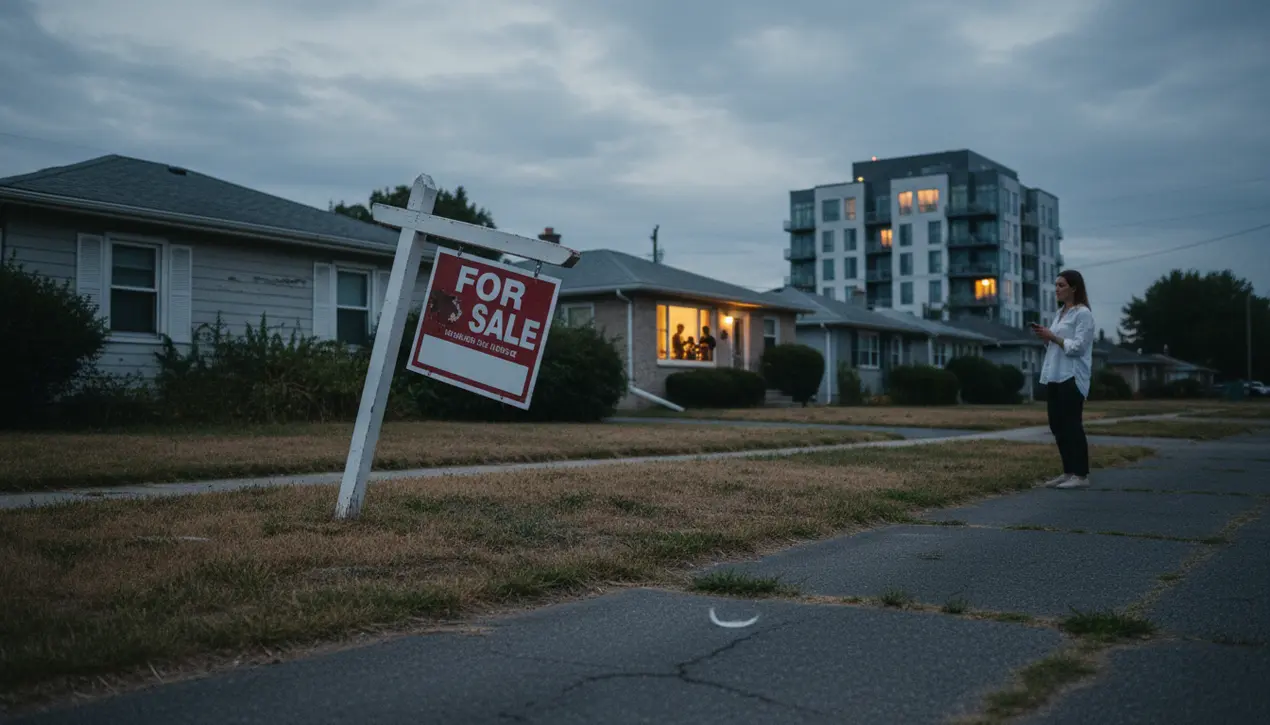
Otherreal estateHousing Market Trends
The Case Against Homeownership: Why Renting Might Be the Smarter Choice
ET
Ethan Brown
3 hours ago7 min read
In a bold challenge to a cornerstone of American life, Jerusalem Demsas, editor-in-chief of The Argument, declares that 'homeownership is overrated. ' This contrarian stance confronts a powerful national belief, as 70 percent of Americans consider owning a home essential to the American dream.Demsas, a contented renter, makes a compelling case for the financial and personal benefits of renting, arguing that our cultural fixation on property ownership is misguided. 'I love being able to move when I want to move,' she states, emphasizing the unparalleled flexibility that renting provides.'I love not feeling like it's my responsibility to make sure the roof is okay and make sure the fridge isn't going to break. ' This perspective goes beyond mere convenience, striking at the heart of what we consider a 'smart' investment.A house is a massive, illiquid asset, and Demsas asserts that we significantly 'overhype the financial benefits. ' The traditional pro-ownership narrative rests on two shaky pillars.The first is the 'forced savings' argument—the idea that mortgage payments build equity while rent payments are simply lost. While this is technically accurate, it ignores the second, riskier assumption: a guaranteed high return.For this return to materialize, a perfect alignment of economic conditions is required. Many homeowners during the Great Recession learned this the hard way, forced to sell at a loss due to job loss or medical emergencies.The true cost of ownership also frequently surpasses renting when you account for property taxes, insurance, maintenance, and the significant opportunity cost of a large down payment. That capital, if invested in a diversified portfolio like broad-market index funds, has historically yielded returns that outperform most residential real estate appreciation, offering a more reliable and liquid path to wealth.How did homeownership become so deeply entwined with 'making it'? The history is both psychological and political. The early 1900s saw the rise of a conservative ideology promoting homeowners as more stable, invested citizens, often contrasted with transient renters.This 'anti-renter' bias became culturally and legally embedded, cementing the white picket fence as an American ideal. Yet, this social argument also falters.Demsas notes that renting can enable people to live in vibrant, connected communities they couldn't afford to buy into, strengthening social bonds. Conversely, the drive for ownership often pushes first-time buyers to distant suburbs, trading community for property.Ultimately, Demsas redefines the American dream not as ownership, but as economic freedom. 'I don't think homeownership is freedom for everyone,' she argues, pointing to the immense stress of an 'underwater' mortgage or being trapped by an illiquid asset.True liberation, she contends, stems from policies that ensure good jobs, strong tenant protections, and robust social safety nets—not from a property deed. It's a powerful, nuanced argument that invites a personal reassessment of what it truly means to build a prosperous and free life.
#homeownership
#renting
#personal finance
#American dream
#housing market
#real estate
#featured
Stay Informed. Act Smarter.
Get weekly highlights, major headlines, and expert insights — then put your knowledge to work in our live prediction markets.
Related News
Comments
Loading comments...
© 2025 Outpoll Service LTD. All rights reserved.